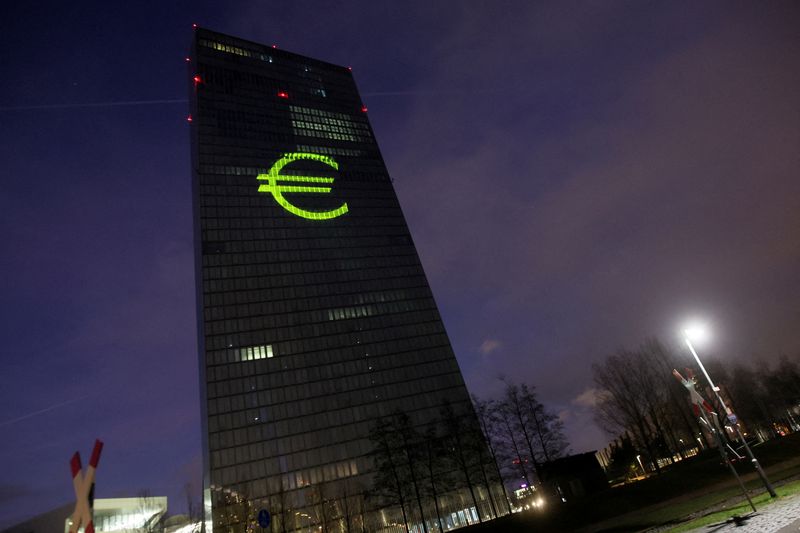Wall St futures flat amid US-China trade jitters; bank earnings in focus
Investing.com - European Central Bank interest rates may be approaching bottoming out, although the trajectory of borrowing costs could still be altered by ongoing trade uncertainty, according to ECB policymaker Martins Kazaks.
Speaking to CNBC, Kazaks said that, should the ECB’s baseline scenario for inflation settling around 2% hold, the central bank may be "relatively close to the terminal rate already".
But Kazaks -- the current Governor of the central Bank of Latvia -- noted that a "couple of cuts" remain possible, although the "important thing" is to see how trade negotiations evolve.
On Monday, an agreement to lower and delay tariffs between U.S. and China -- the world’s two largest economies -- helped to assuage some worries over global trade tensions.
U.S. President Donald Trump has also paused elevated "reciprocal" levies on a host of countries, including the European Union, which includes many eurozone countries. Still, uncertainty surrounds the potential of a renewed trade deal Washington and Brussels, with analysts at Barclays (LON:BARC) flagging "no signs of progress" in discussions between the two sides.
In a separate interview on Friday, Bank of France head Francois Villeroy de Galhau flagged the ongoing risk of a trade war between the EU and U.S., but suggested that the ECB would not use rates as a tool to devalue the euro to gain an economic advantage.
At its last meeting in April, the ECB cut its benchmark deposit rate by 25 basis points to 2.25%, the seventh reduction in a year, while the interest rate on its main refinancing operations fell to 2.40% and its marginal lending facility dropped to 2.65%.
The euro area economy has been building up some resilience against global shocks, the central bank said, but the outlook for growth has deteriorated owing to the trade spat.
Investors are currently projecting about a 90% probability that the ECB will slash rates again on June 5 and then once again later this year. This would bring the ECB’s deposit rate down to 1.75%.
